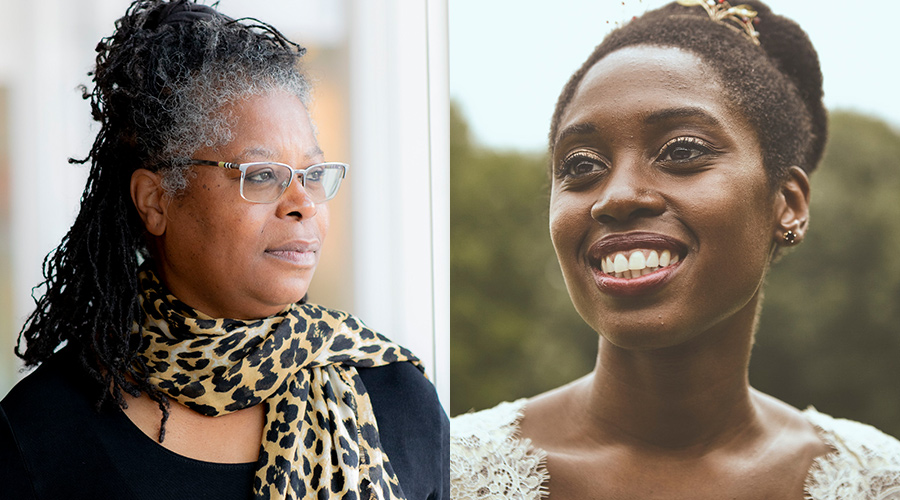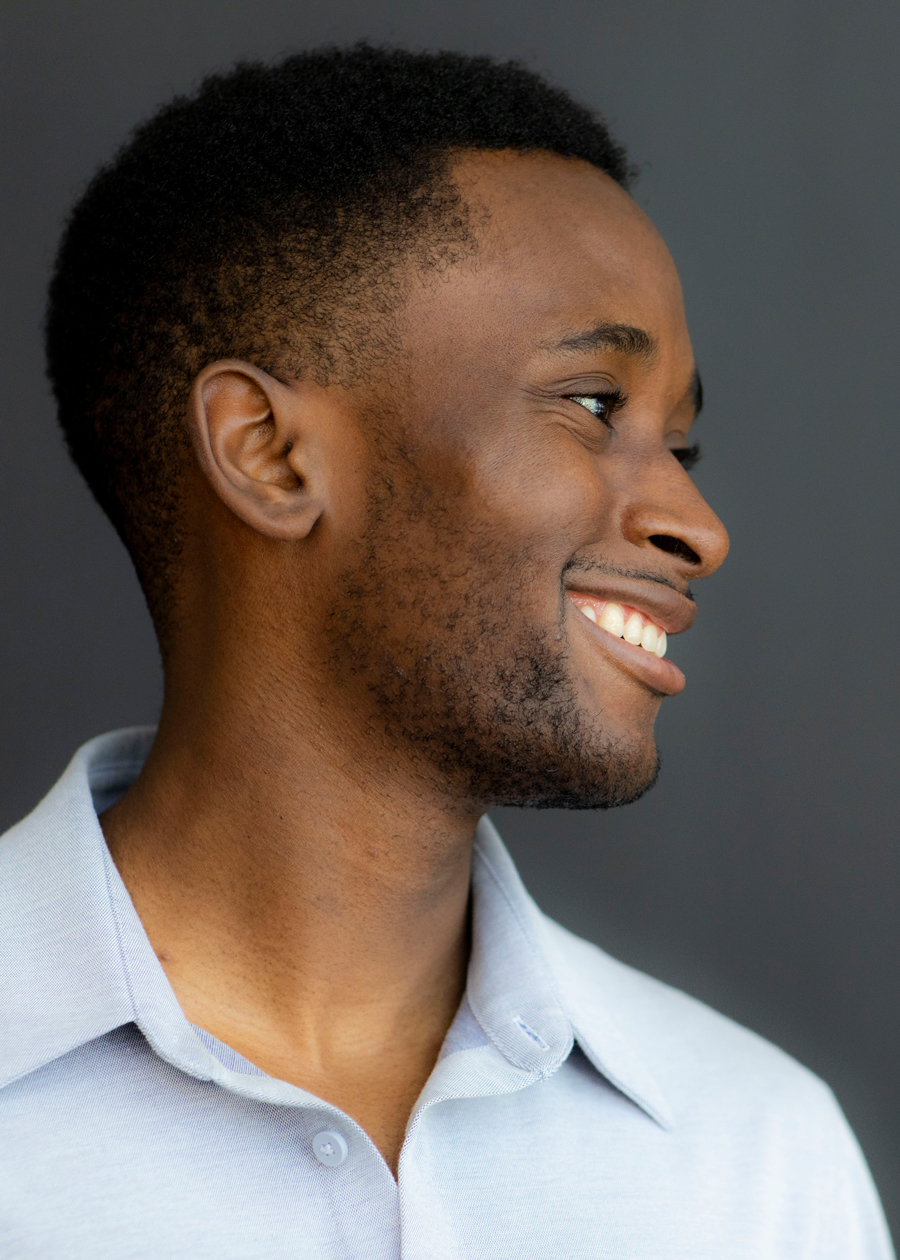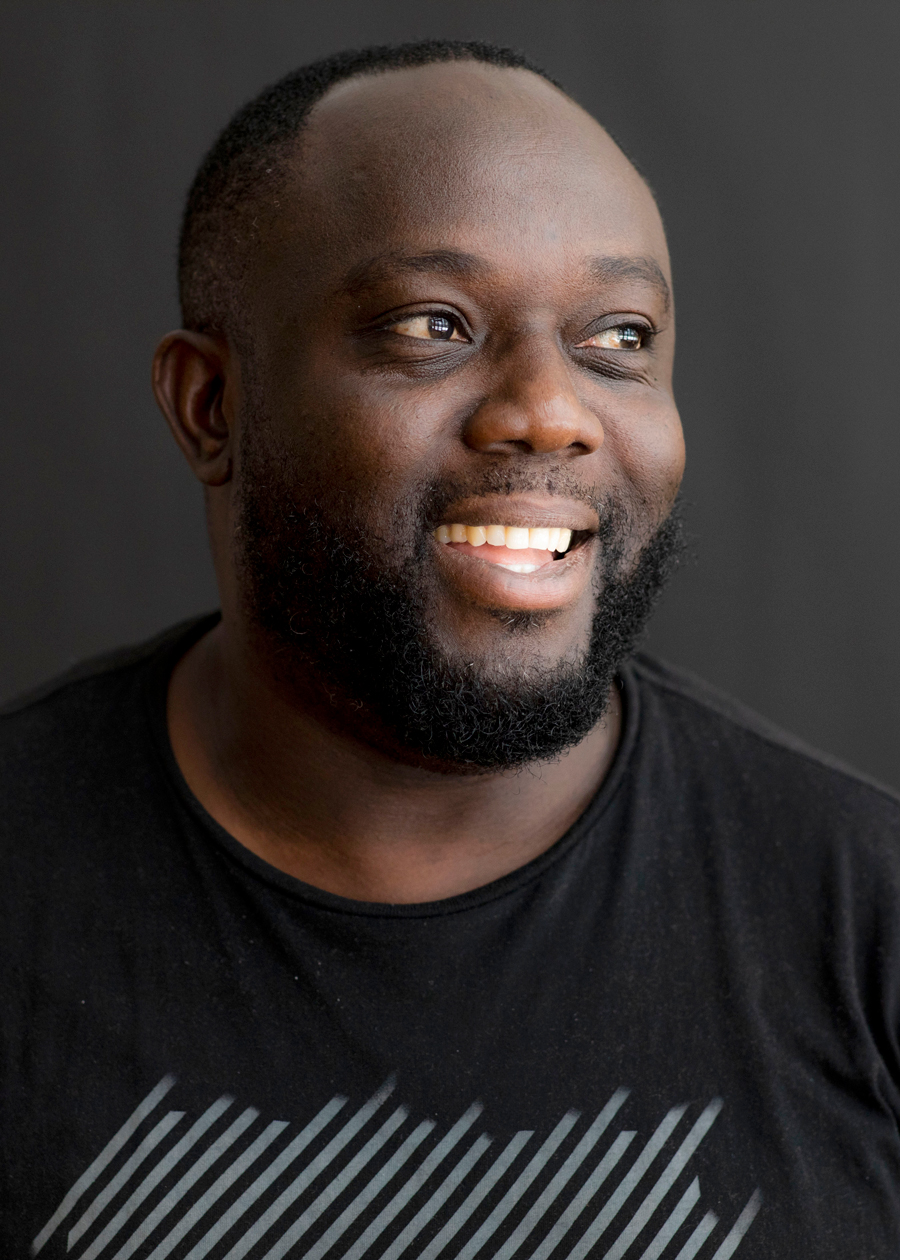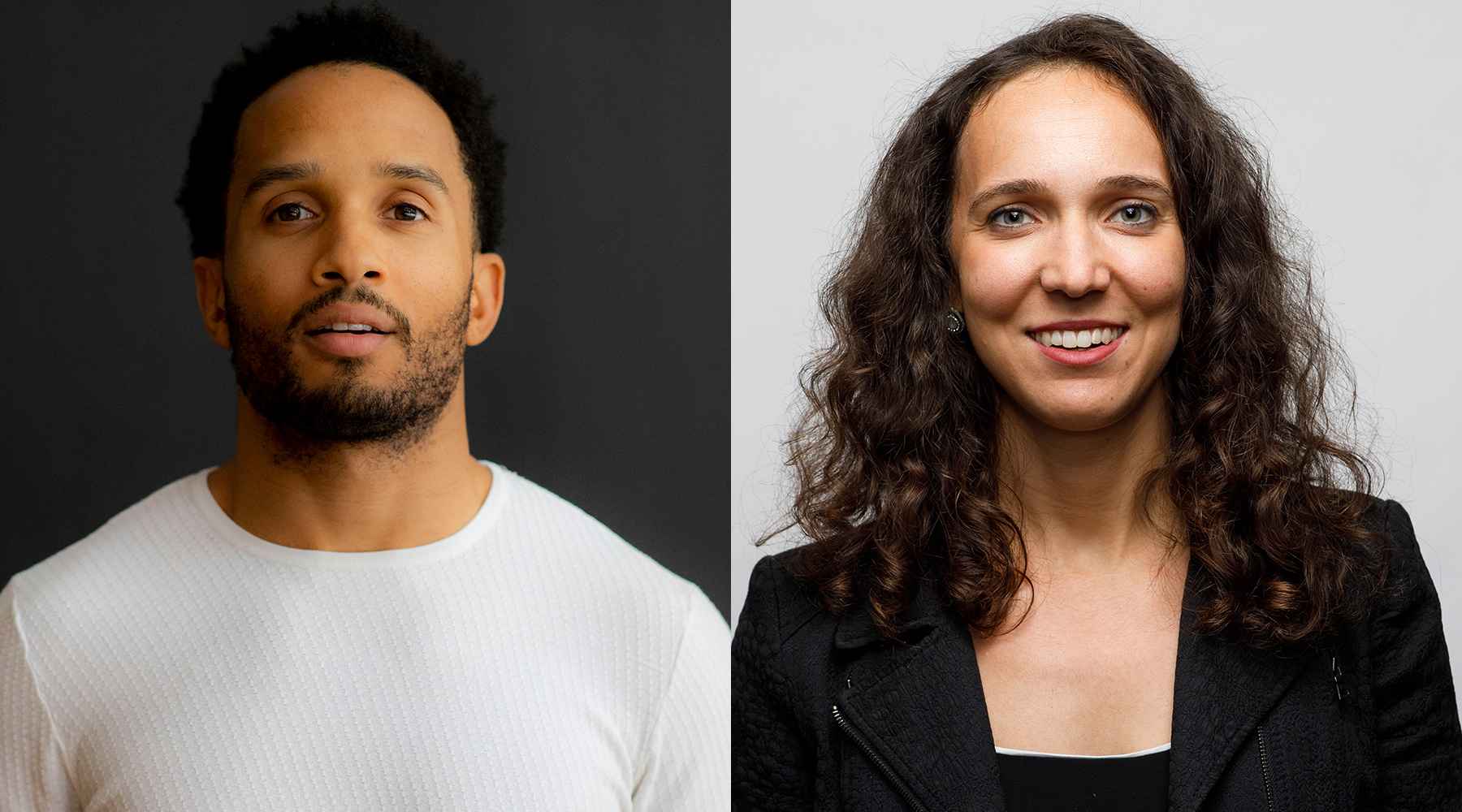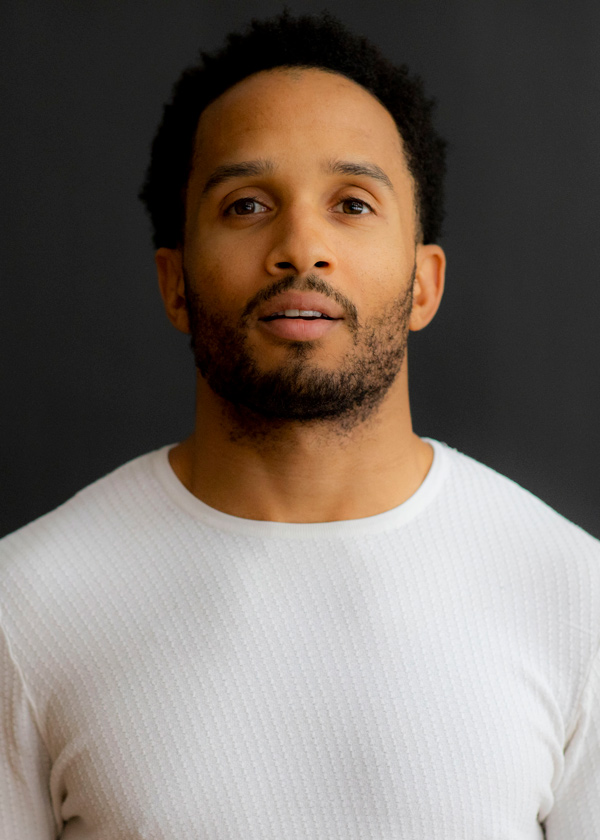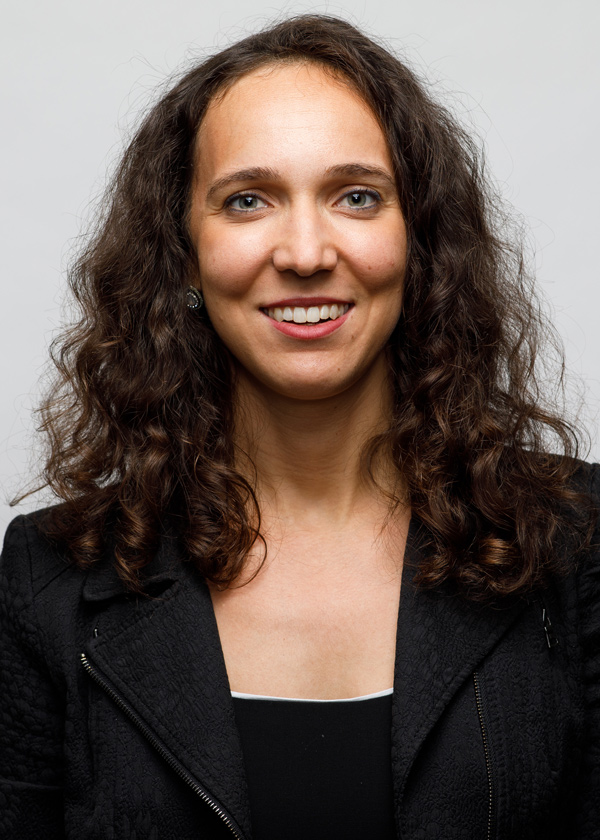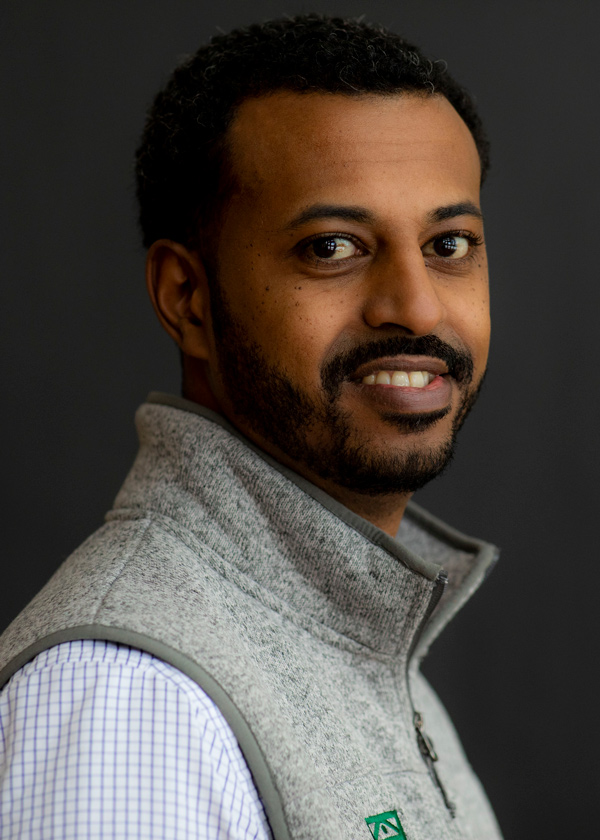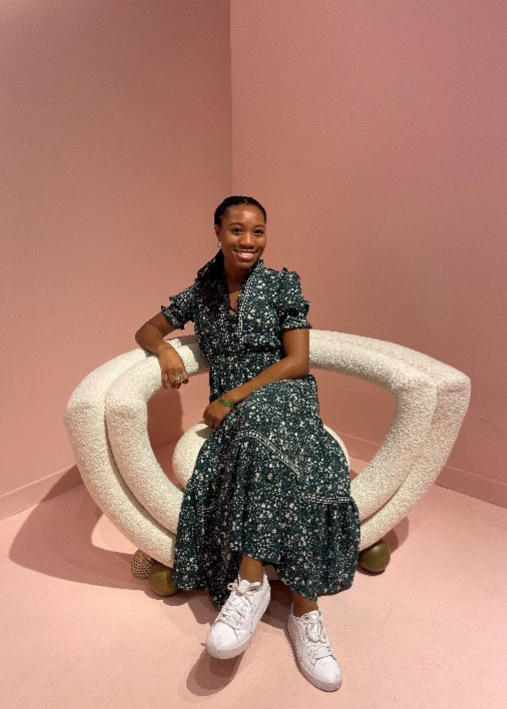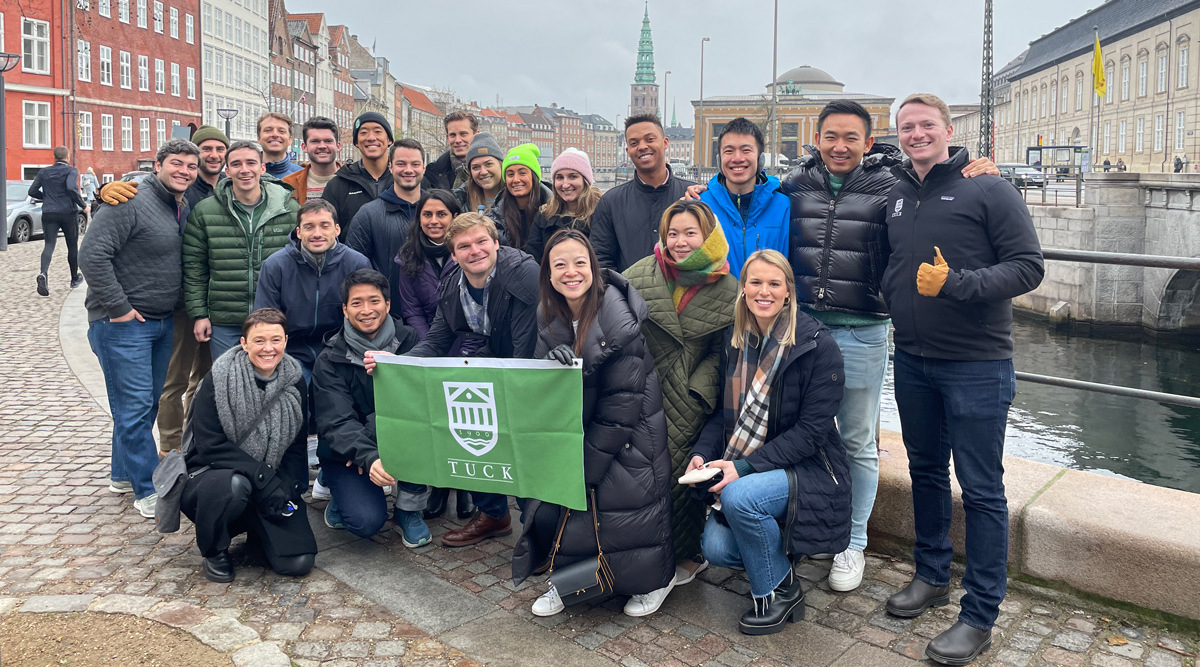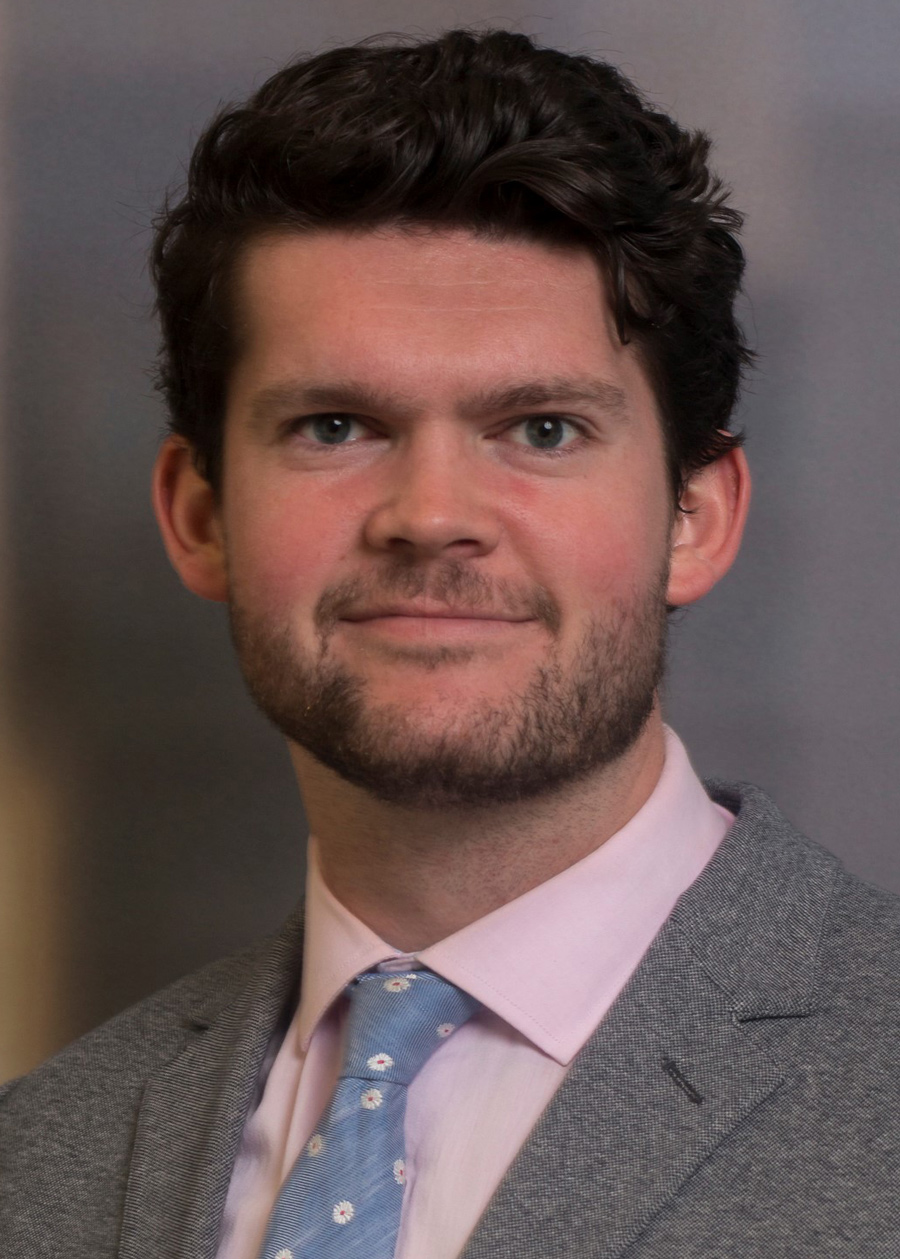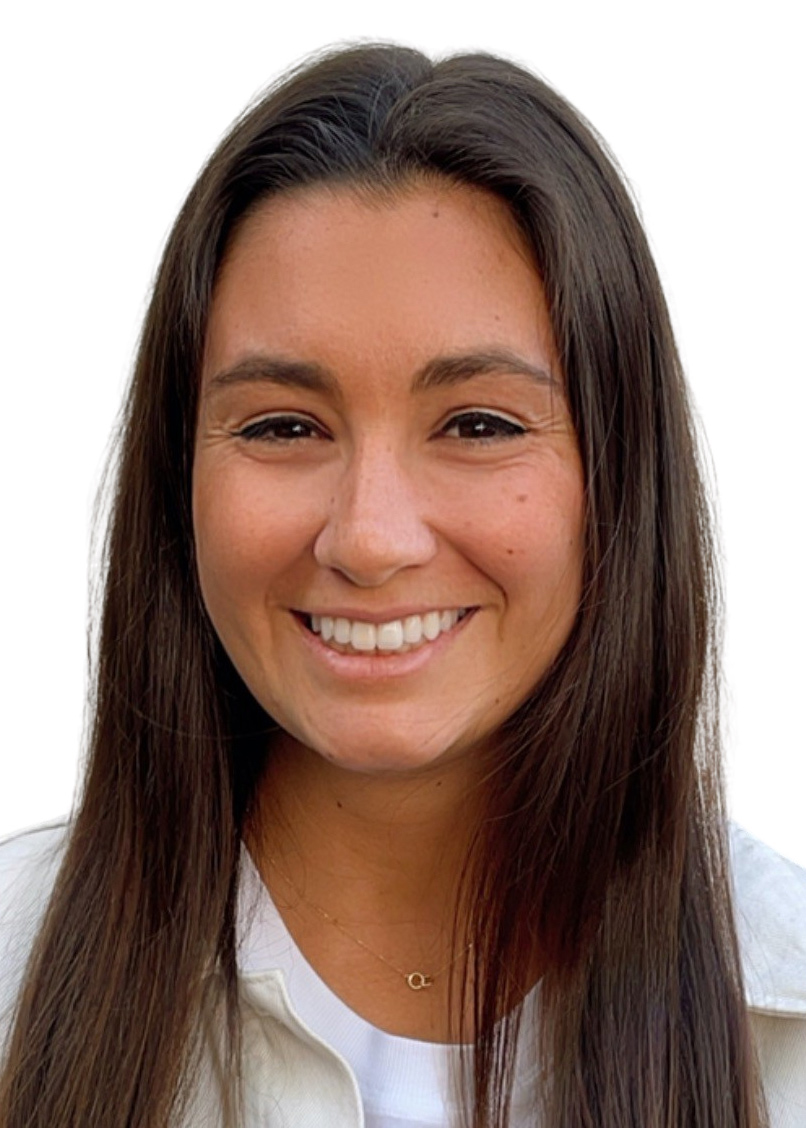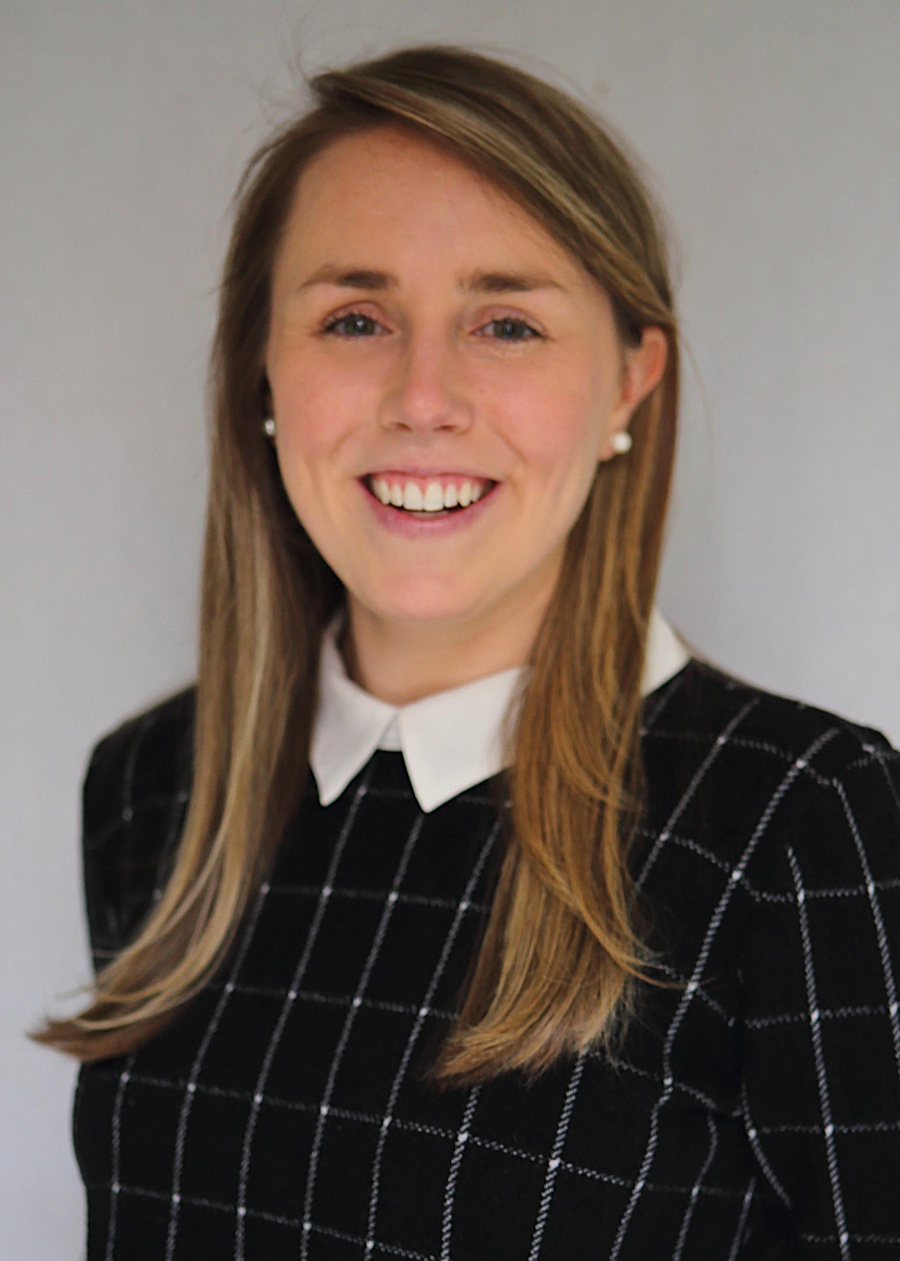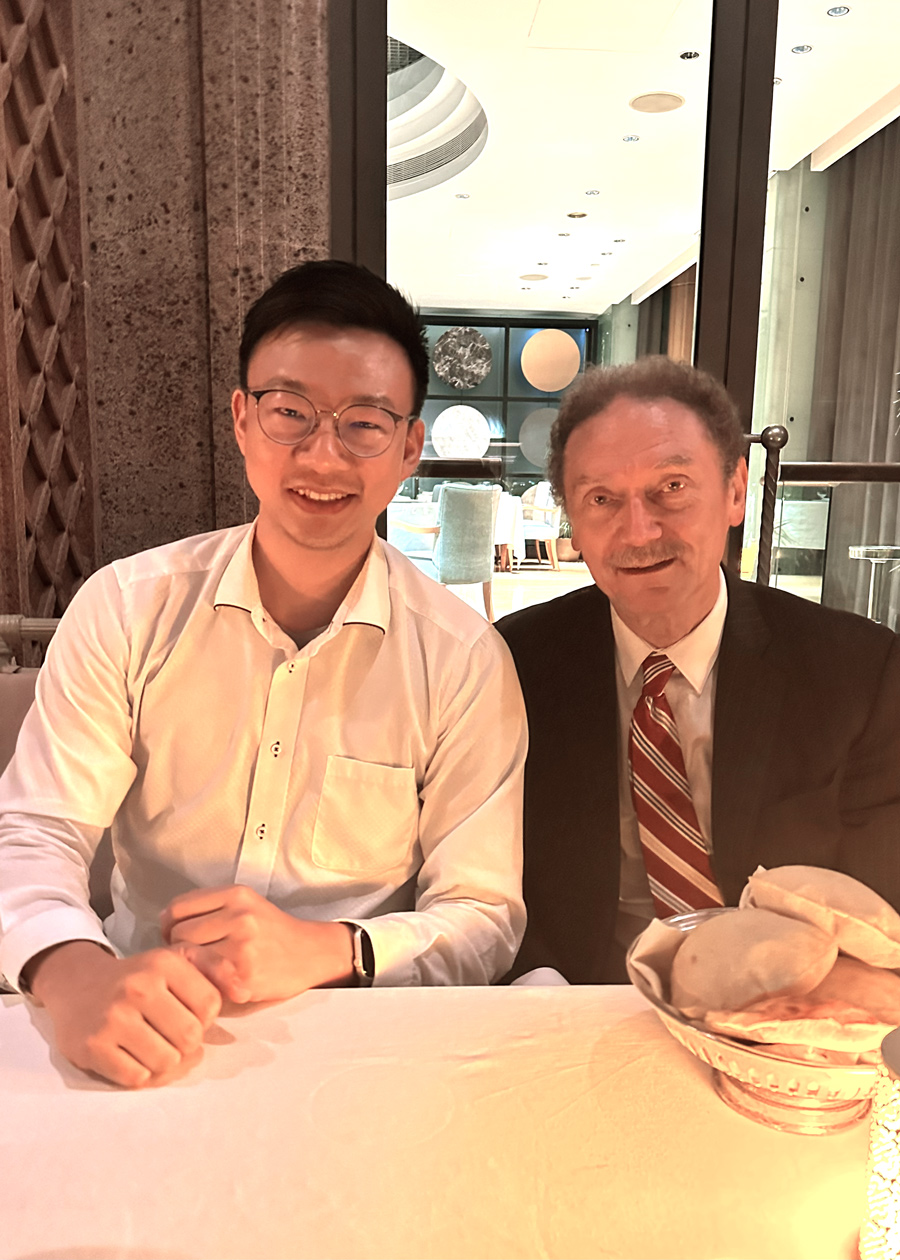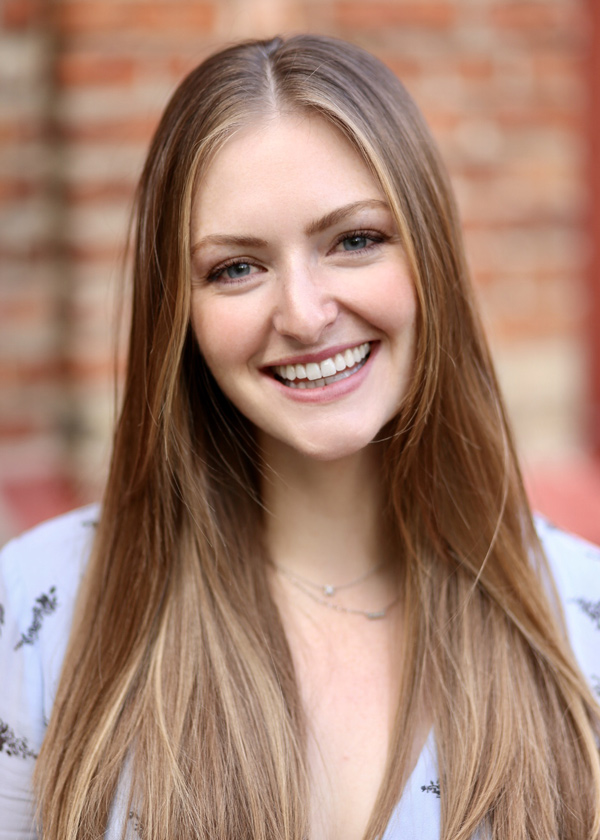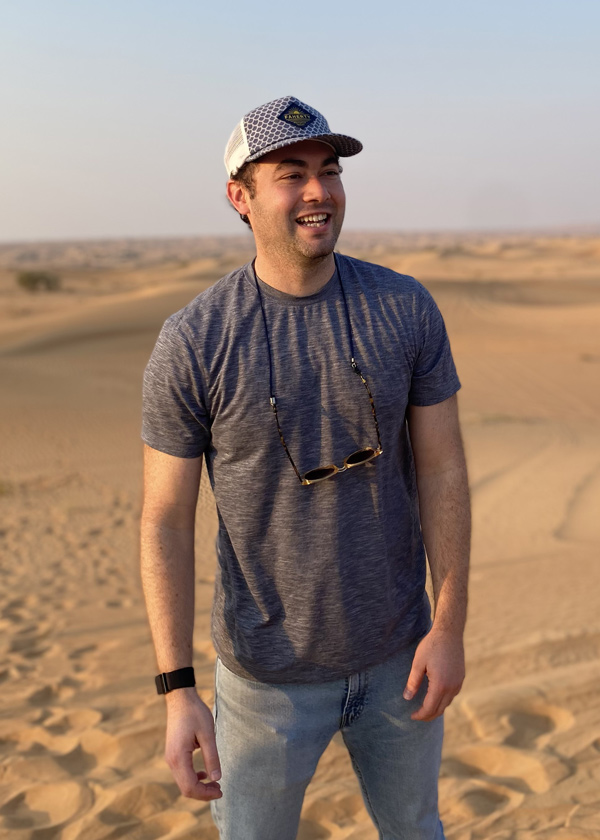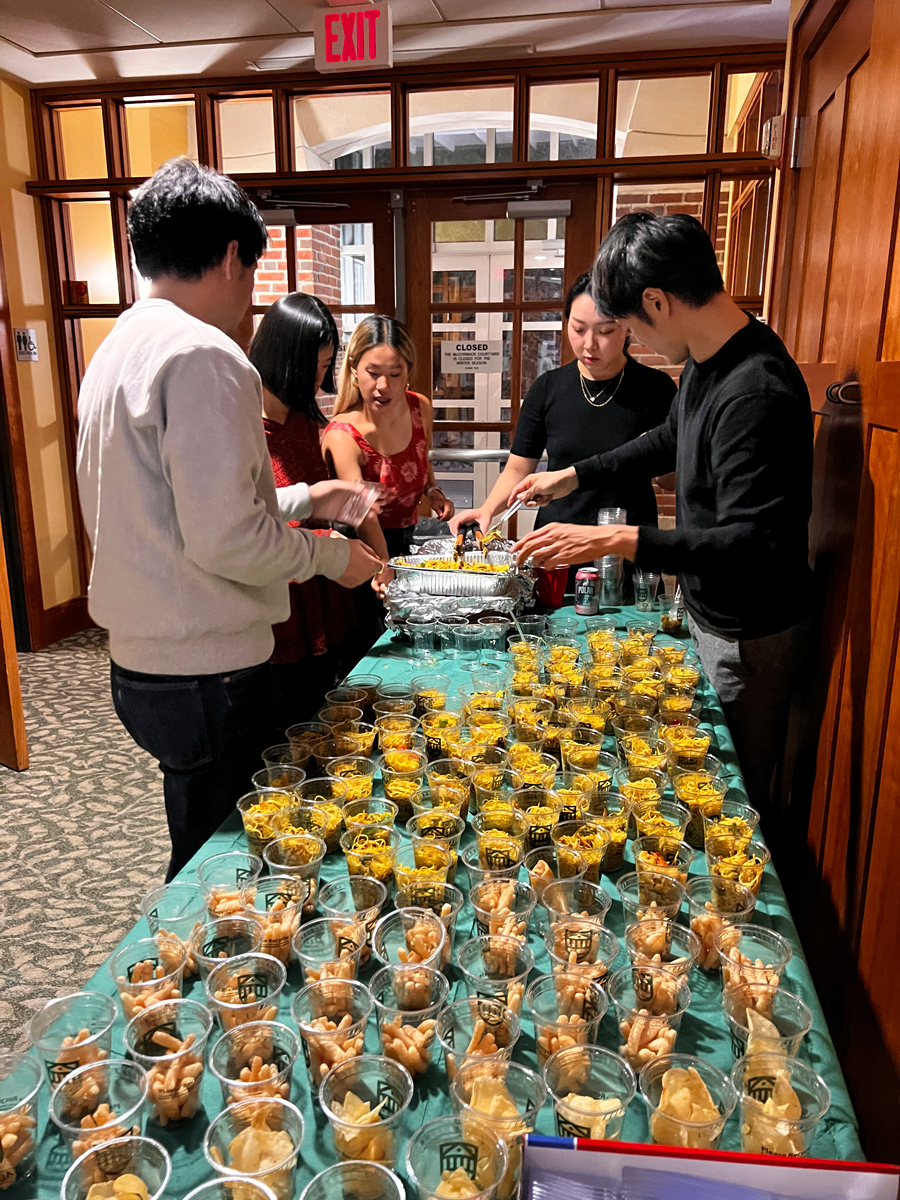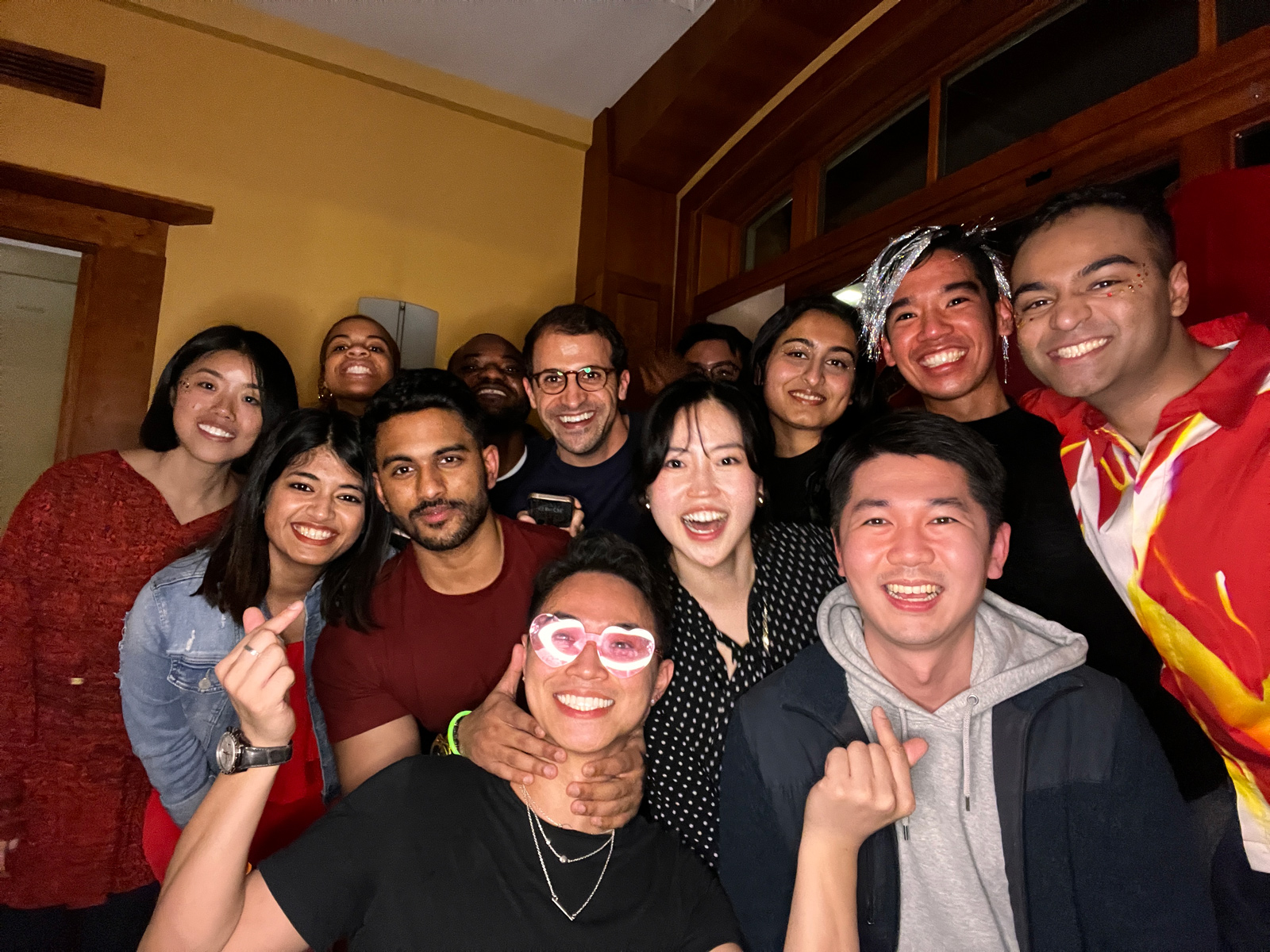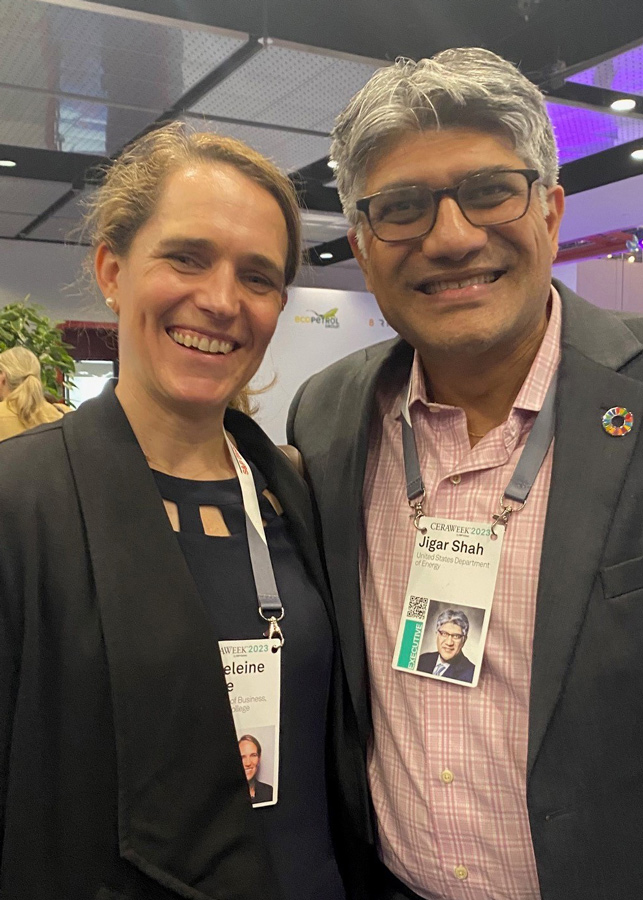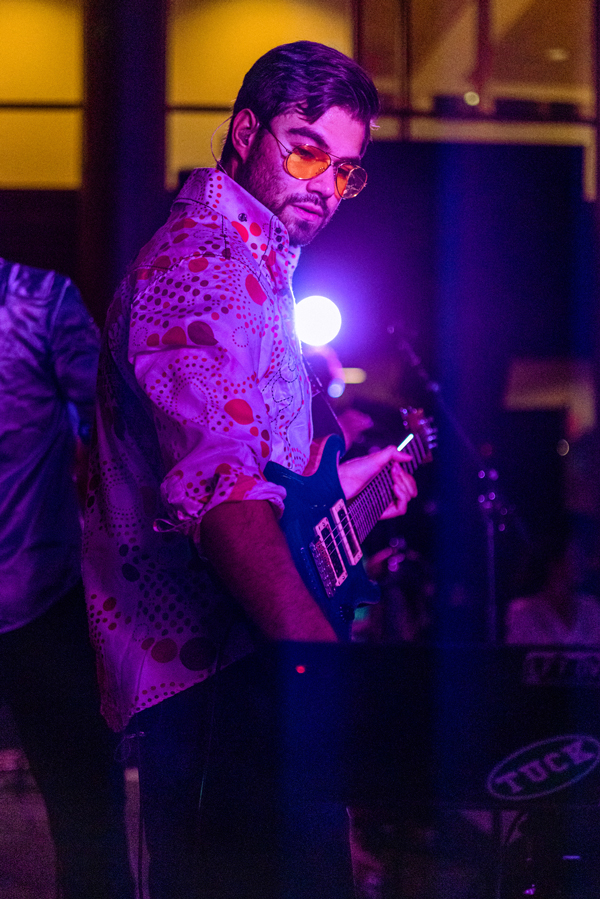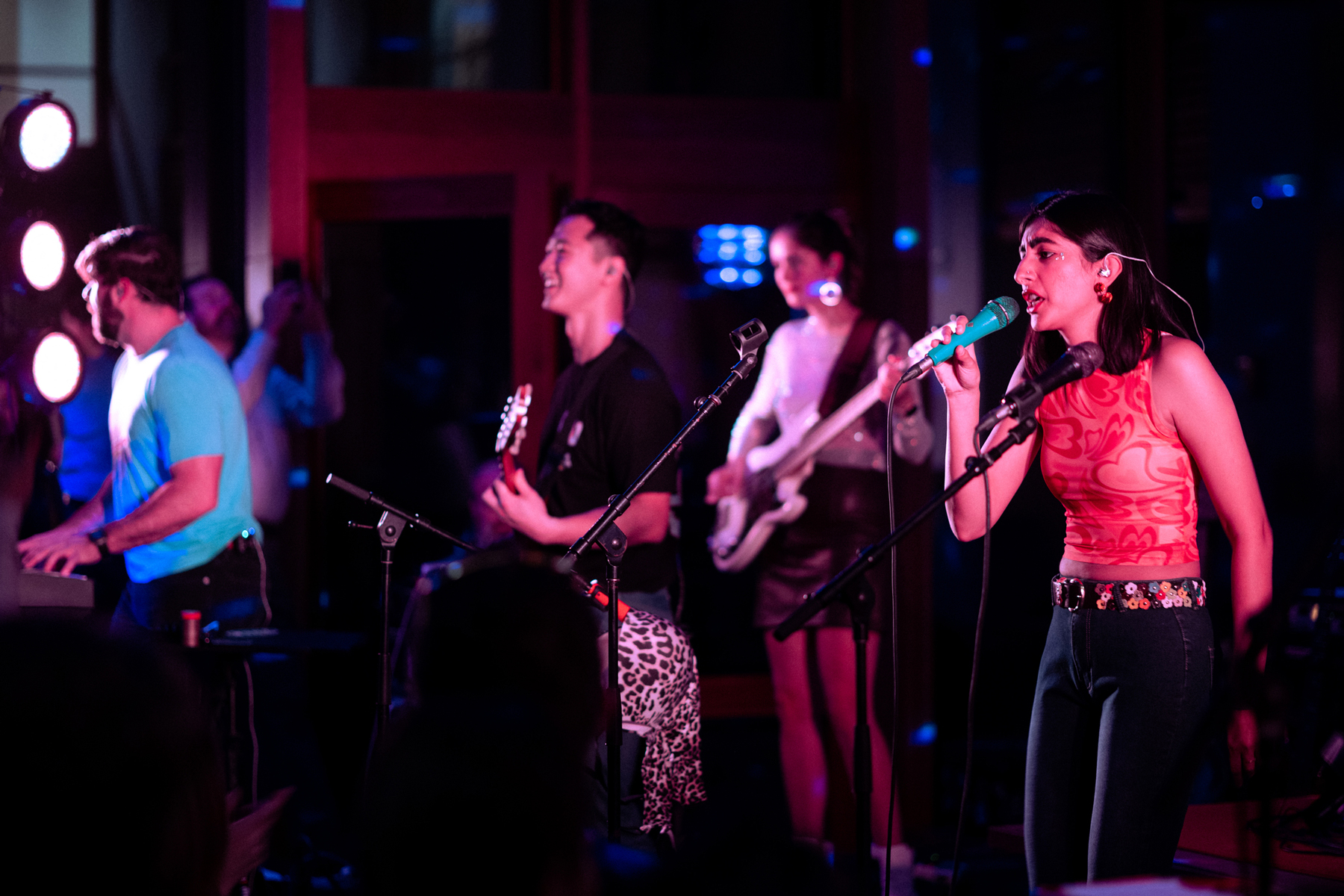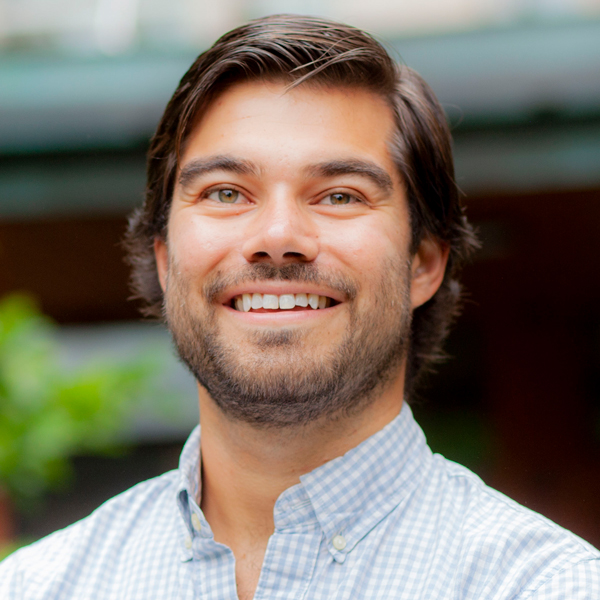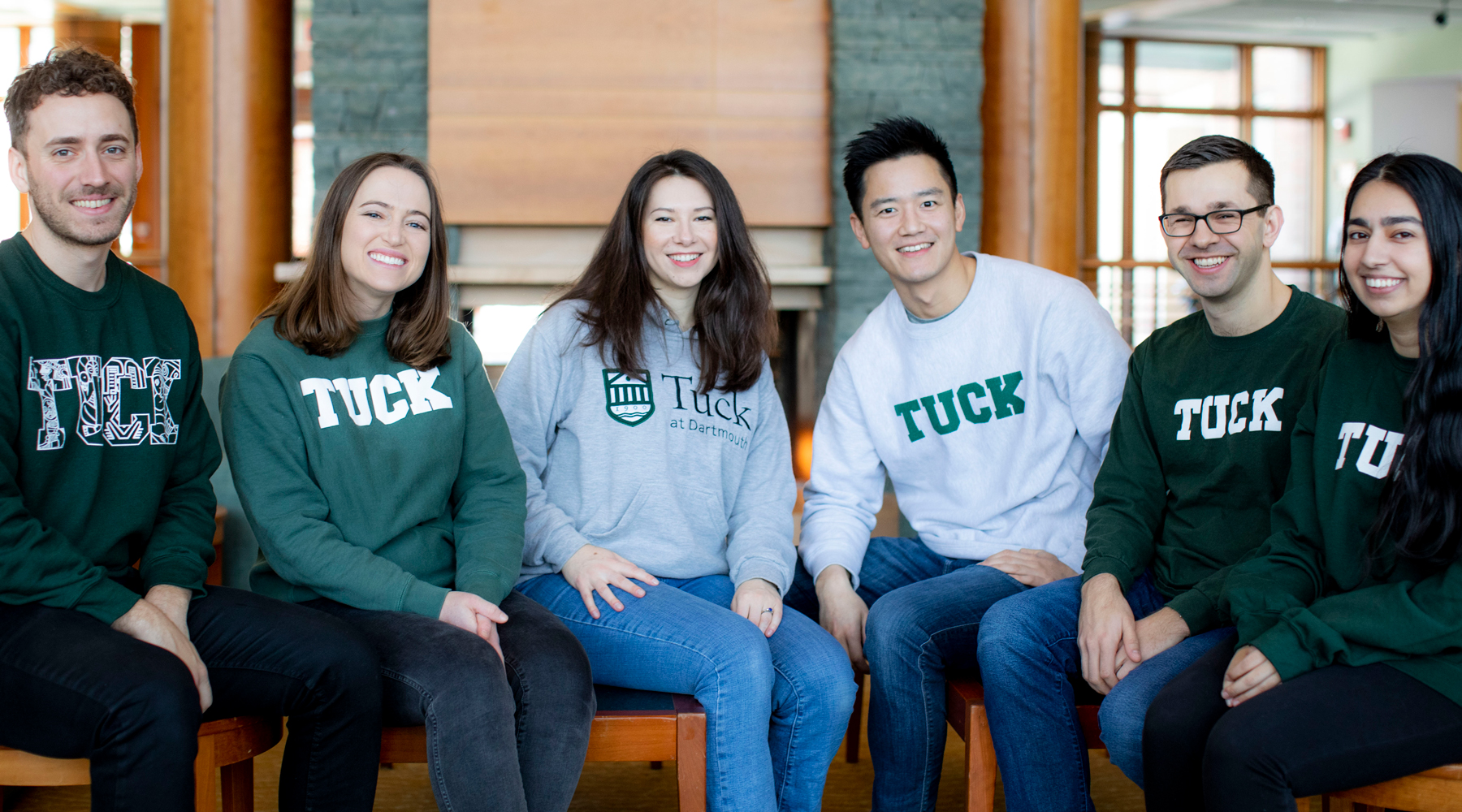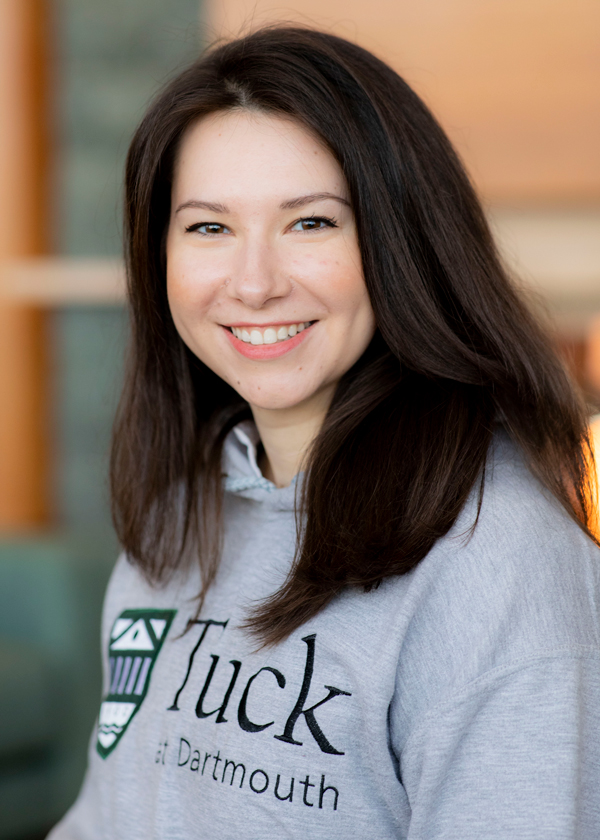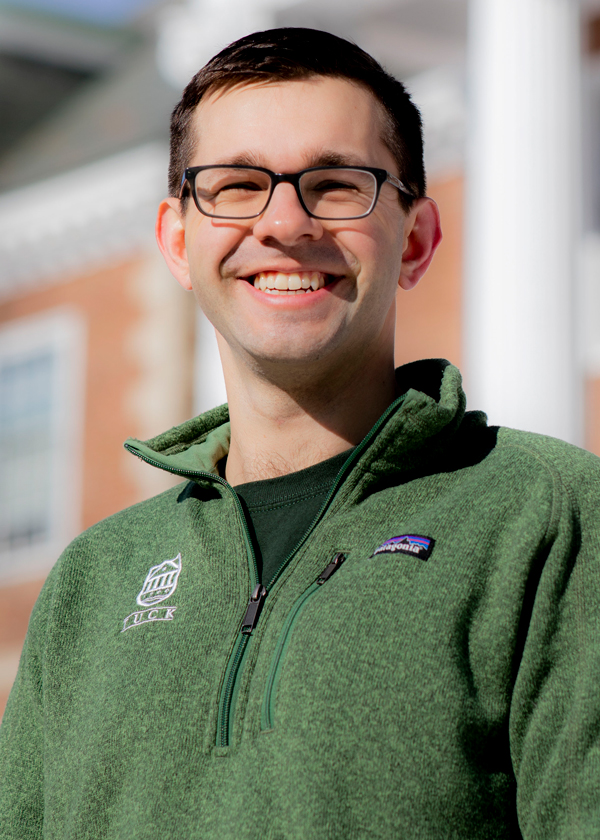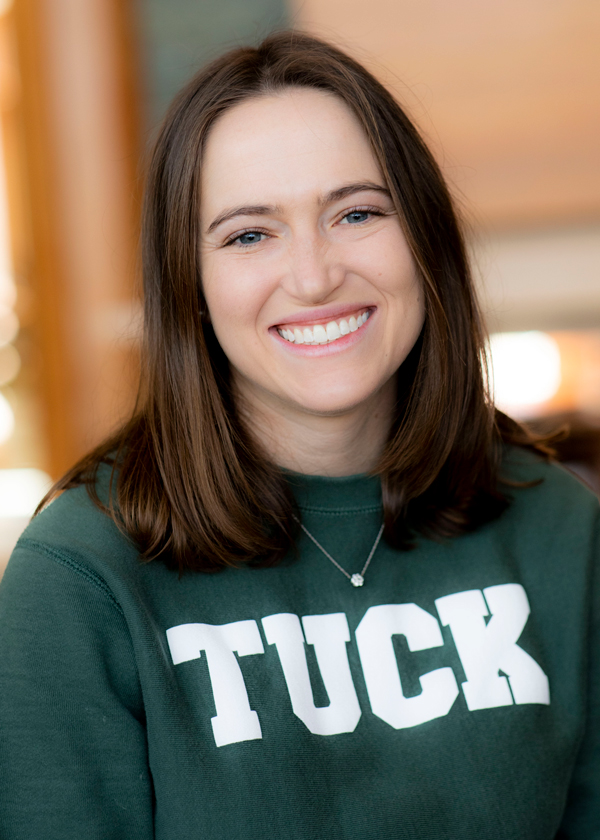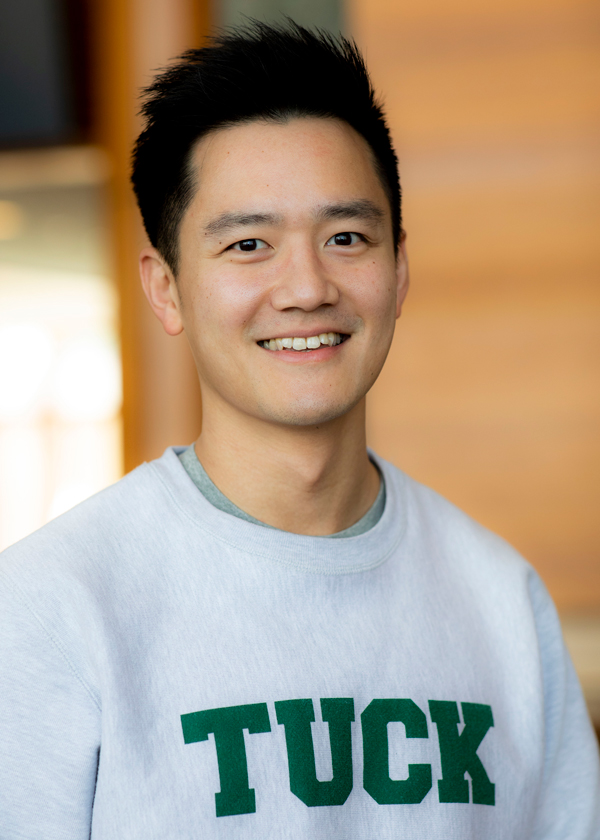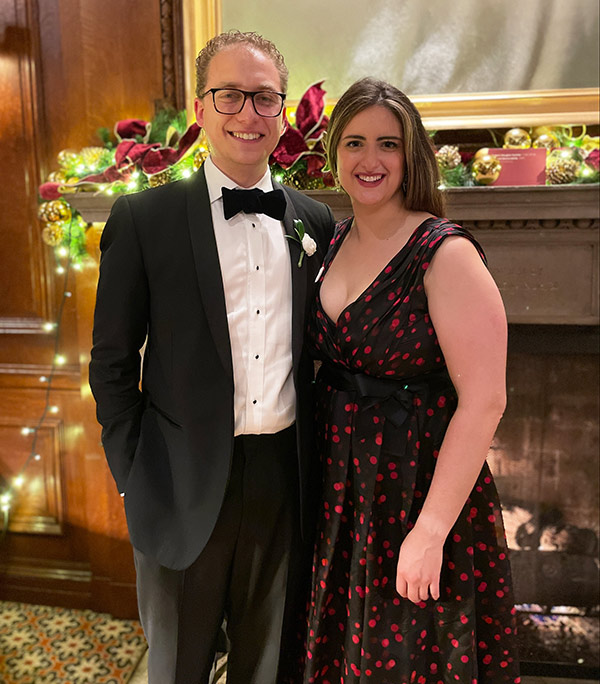Events & Promotions
|
|

GMAT Club Daily Prep
Thank you for using the timer - this advanced tool can estimate your performance and suggest more practice questions. We have subscribed you to Daily Prep Questions via email.
Customized
for You
Track
Your Progress
Practice
Pays
Not interested in getting valuable practice questions and articles delivered to your email? No problem, unsubscribe here.
- Nov 20
07:30 AM PST
-08:30 AM PST
Learn what truly sets the UC Riverside MBA apart and how it helps in your professional growth - Nov 20
10:00 AM EST
-10:30 AM EST
If you’re applying to Columbia, NYU Stern, or Yale SOM, you need more than strong stats. Each school defines “leadership” differently, and your essays must reflect that. Join Sia Admissions founder, Susan Berishaj on November 20th - Nov 12
01:00 PM EST
-11:59 PM EST
Get expert MBA strategy, instant essay feedback, and personalized advice on your entire application. Join My Admit Coach, the AI-powered MBA admissions platform built on 10K+ successful application docs for HBS, Stanford GSB, MIT and other top programs. - Nov 19
09:00 AM PST
-10:00 AM PST
What’s in it for you- Live Profile Evaluation Chat Session with Jenifer Turtschnow, CEO ARINGO. Come with your details prepared and ARINGO will share insights! Pre-MBA Role/Industry, YOE, Exam Score, C/GPA, ECs Post-MBA Role/ Industry & School List. - Nov 19
10:00 AM EST
-01:00 PM EST
Get expert MBA strategy, instant essay feedback, and personalized advice on your entire application. Join My Admit Coach, the AI-powered MBA admissions platform built on 10K+ successful application docs for HBS, Stanford GSB, MIT and other top programs. - Nov 19
11:00 AM PST
-12:00 PM PST
Round 2 is here — and it’s your chance to make your MBA dream happen! Join GMAT Club’s LIVE discussion with two top experts from The Red Pen, Gunjan Jhunjhunwala and Natasha Mankikar, as we break down everything you need to know - Nov 20
09:00 PM IST
-10:00 PM IST
Join our free expert-led Essay Workshops to discover how to choose impactful stories, highlight your core values, and align your background with each school’s distinct culture, making every word truly count. - Nov 21
08:30 AM EST
-09:15 AM EST
Get the inside scoop on what makes Emory’s Goizueta Business School great, learn how you can present a strong MBA application, and connect with an Admissions Director to get your questions answered. - Nov 21
09:30 PM IST
-10:30 PM IST
Learn how to craft powerful, authentic essays by mastering the 3 “WHYs” every top MBA program looks for: Why MBA, Why Now, and Why This School. - Nov 24
08:00 PM PST
-09:00 PM PST
Inquire for a free profile evaluation and guarantee statement for possible admits and scholarships!
Kudos
Bookmarks
| FROM Tuck Admissions Blog: Tuck GIVES: The Intersection of Social Impact & Venture Capital |
 This past summer I worked at the Maine Venture Fund (MVF) in Portland, Maine—a social impact venture capital company focused on investments in Maine-based companies. My experience included two different types of work: conducting internal VC fund activities and helping a portfolio company achieve one of its key strategic growth projects. As part of my work for MVF, I came to understand all parts of the venture deal process. This included attending meetings with Maine-based entrepreneurs, scoping their business plans, and reviewing their financial models. What is the market size opportunity for the company’s product? What impact are they creating (e.g., economic growth in rural areas, environmental)? How do they plan on scaling and growing their business? This culminated in contributing to writing an investment memo for the board of directors with our proposal to pursue more detailed diligence in the company, which the board then voted on. 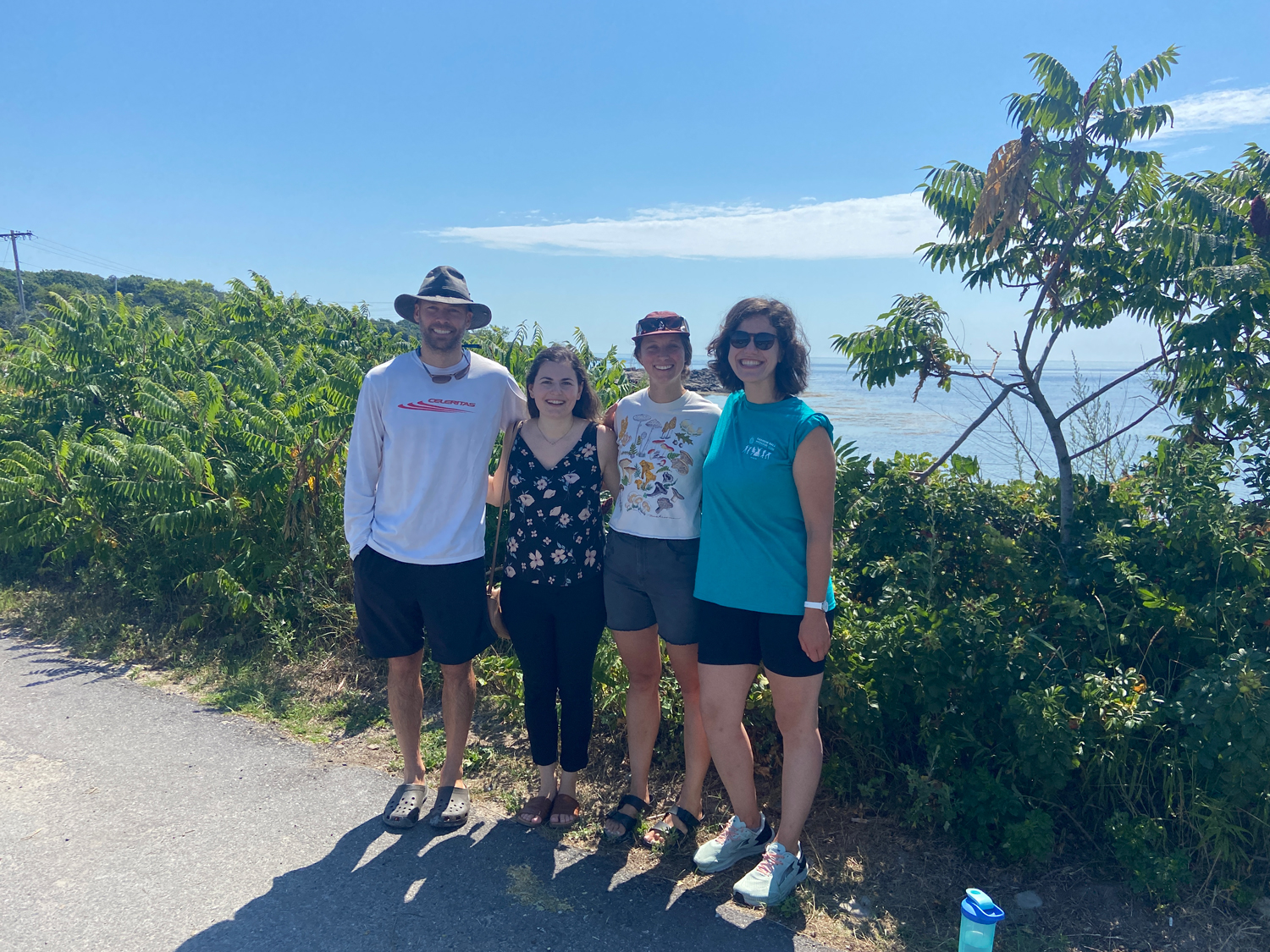 MVF team hike Other projects included researching VC funds across various sectors to build their co-investor database as well as helping plan the Maine Venture Fund startup challenge– a competition organized by MVF to help students develop business plans and pursue entrepreneurship. Additionally, as part of the internship, MVF cared about us learning about all aspects of the venture capital industry, which meant hosting weekly knowledge-sharing sessions on key aspects of the venture deal process (e.g., cap tables, fundraising, term sheets, etc.) and reading Venture Deals. In addition to working directly with the MVF investors, I worked on a strategic project for an ed-tech portfolio company. The portfolio company was exploring diversifying from its base of college/university clients into business-to-business accounts. My role was to identify and develop product expansions into the employer market as a growth opportunity for the company. My project began by researching the challenges employees face regarding belonging and inclusion in the workplace. I leveraged this research to conduct user interviews with large Maine-based employers across various industries (e.g., insurance, legal, banking, etc.) Our goal was to understand current pain points across recruiting, employee engagement, and retention. Ultimately my research and interviews culminated in several employers being interested in participating in the pilot launch of the new product. 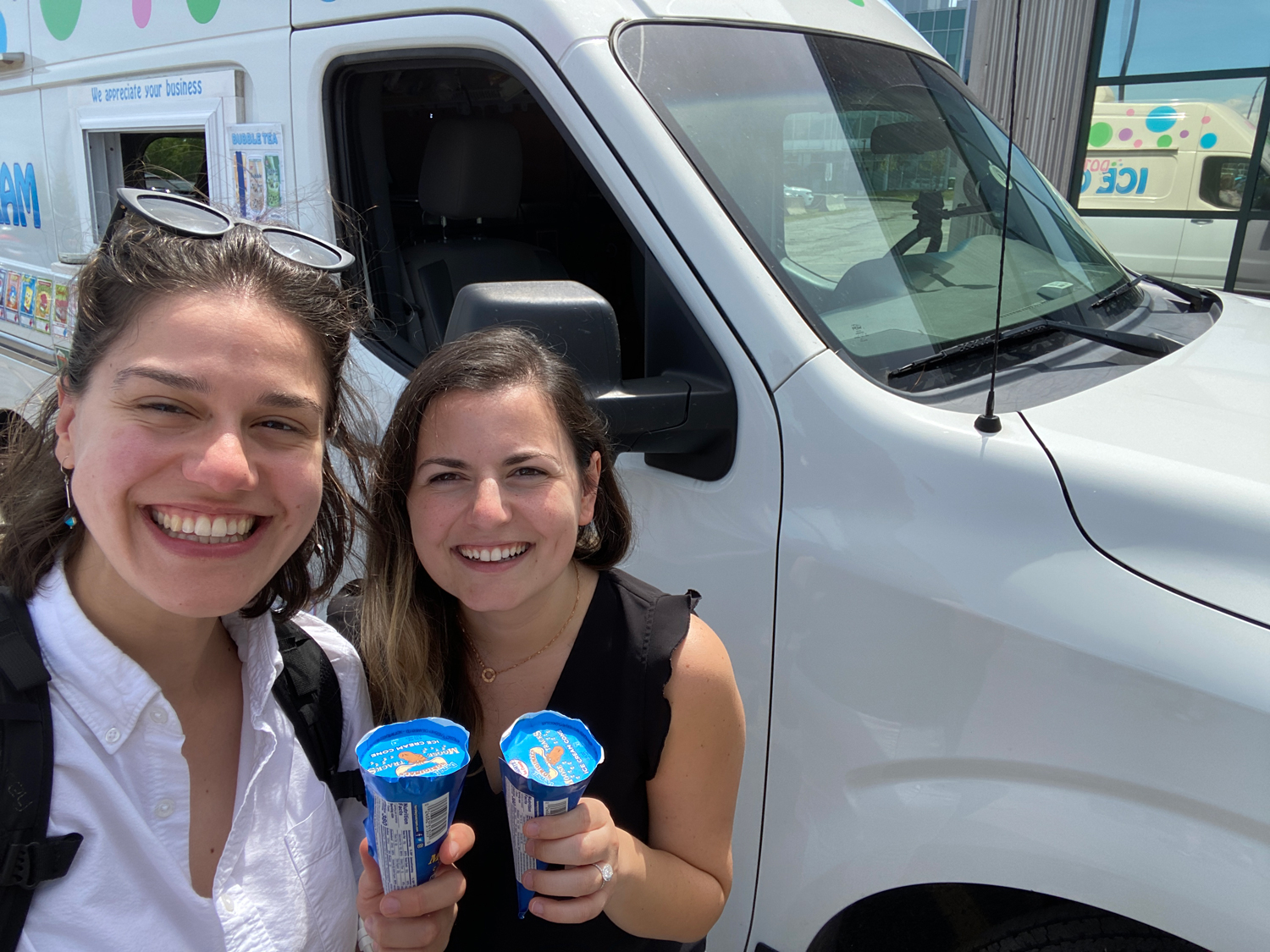 A snack with Emilie, my co-intern and fellow Tuckie Lastly, one of the main benefits of working at MVF was living in Portland and exploring Maine while taking advantage of the great food (lobster rolls!) and coffee shops. I saw a Portland Seadogs game (minor league baseball) and visited lighthouses in a few coastal towns. We also had team outings in downtown Portland exploring the eastern promenade and hiking in Biddeford. Overall, I learned a lot this summer about the intersection of social impact and the venture capital industry through my time at MVF. This was a really rewarding experience that could not have been possible without the funding I received from Tuck Gives. |
This Blog post was imported into the forum automatically. We hope you found it helpful. Please use the Kudos button if you did, or please PM/DM me if you found it disruptive and I will take care of it.
-BB
Kudos
Bookmarks
| FROM Tuck Admissions Blog: Augmented Reality to Language Translation: Exploring Innovation with Tuck Alumni on The Sydcast |
 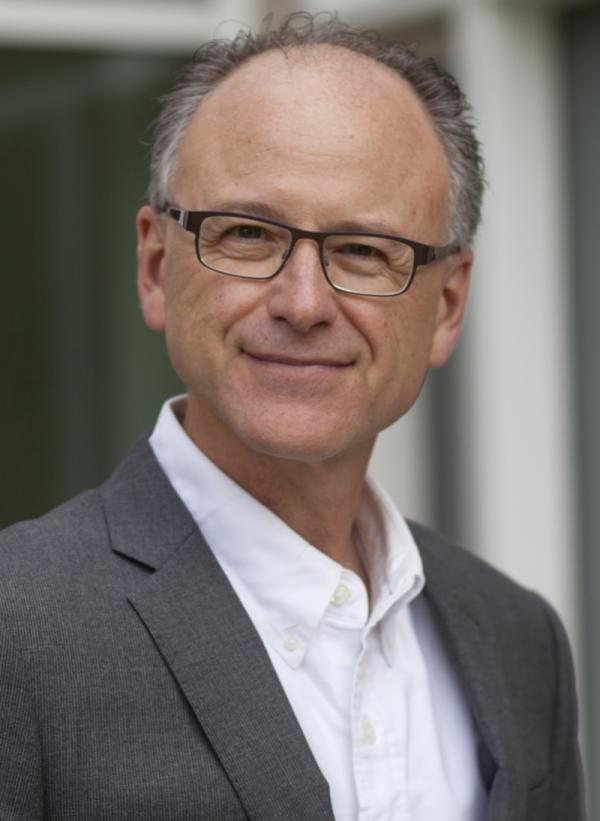 Where have they gone? Where are those real conversations about who we are as people, how we became the person we became, the journeys we’re on, the kind of career we’re crafting? Sydney Finkelstein, Steven Roth Professor of Management at Tuck, found himself asking these questions before launching The Sydcast in 2019. The podcast, which features intimate and informative conversations with an array of guests, was inspired by this desire for deeper storytelling and human connection. In each episode, Professor Finkelstein sits down with entrepreneurs, community leaders, professional athletes, politicians, academics, authors, musicians, and more—including many members of the Tuck community. Listen to some recent conversations with Tuck alumni guests, as they discuss everything from a bottom-up approach to problem-solving to competing with Google Translate. Kenny Mitchell T’04 is the Chief Marketing Officer of Snap Inc., the parent company of Snapchat. He guides the brand and business marketing efforts, focusing on driving the growth of the global Snapchat community and the base of advertising and developer partners. Previously, Mitchell was an accomplished leader at McDonald’s U.S., Gatorade, and NASCAR, where he oversaw the marketing efforts related to key consumer touch-points—creative, digital, design, retail, and experiential. Over his 20-year career, Mitchell has received numerous awards and recognitions, including being named one of The Most Creative People in Business by Fast Company, Forbes CMO NEXT, AdWeek 50, Business Insider: 25 Most Innovative CMOs, and Campaign Power 100. The center of gravity really sits with the marketing of an organization. Wendy MacKenzie Pease T’97 is the owner and president of Rapport International, a translation and interpretation services company specializing in marketing, legal, and medical/life sciences translation. Throughout her career, she has worked with hundreds of companies to help them communicate across more than 200 languages and cultures. She is the author of the book, The Language of Global Marketing, and the podcast host of the Global Marketing Show. My biggest advice is, if you are going somewhere to conduct business where English is not the native language (…), to get an interpreter who fully understands the two languages and two cultures, and then you use your interpreter as your cultural conduit. Alejandro J. Crawford T’02 is the co-founder and CEO of RebelBase, the SaaS equipping students, employees, and citizens to build solutions of their own. He also serves as Professor of Entrepreneurship at the Bard MBA in Sustainability. Through Bard’s new course sequence for changemakers, his research has expanded to university systems from Bangladesh to Kyrgyzstan. He writes and speaks widely on expanding access to innovation and, in 2020, co-won the Roddenberry Award to create a documentary about game-changing initiatives developed using the RebelBase platform. Comfort with failure is itself a trainable mentality. |
This Blog post was imported into the forum automatically. We hope you found it helpful. Please use the Kudos button if you did, or please PM/DM me if you found it disruptive and I will take care of it.
-BB
Kudos
Bookmarks
| FROM Tuck Admissions Blog: Supporting the Sustainable Revolution: Takeaways from COP27 |
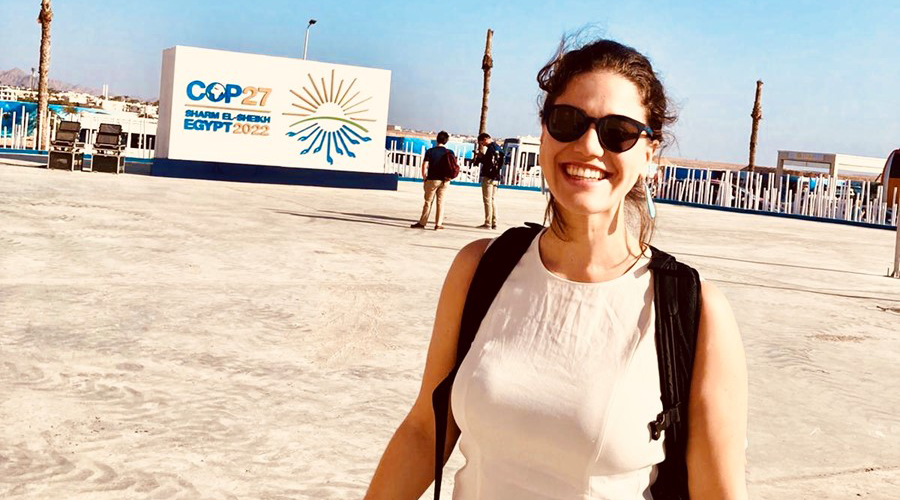 In November 2022, I attended the United Nations climate conference and negotiations, COP27, as part of the Tuck delegation. To me, Tuck’s participation in COP27 represents our school’s commitment to preparing business students to engage in thoughtful, constructive dialogue with global citizens to build a more sustainable future. It is one thing to read about Tuck’s commitments on the school website as an applicant, another to sit in the classroom alongside peers who were also selected to exemplify and expand upon Tuck’s legacy in the world, and entirely different to step off the plane in Egypt and represent Tuck at the United Nations. I am fortunate to have experienced all three of these moments in just two years’ time. 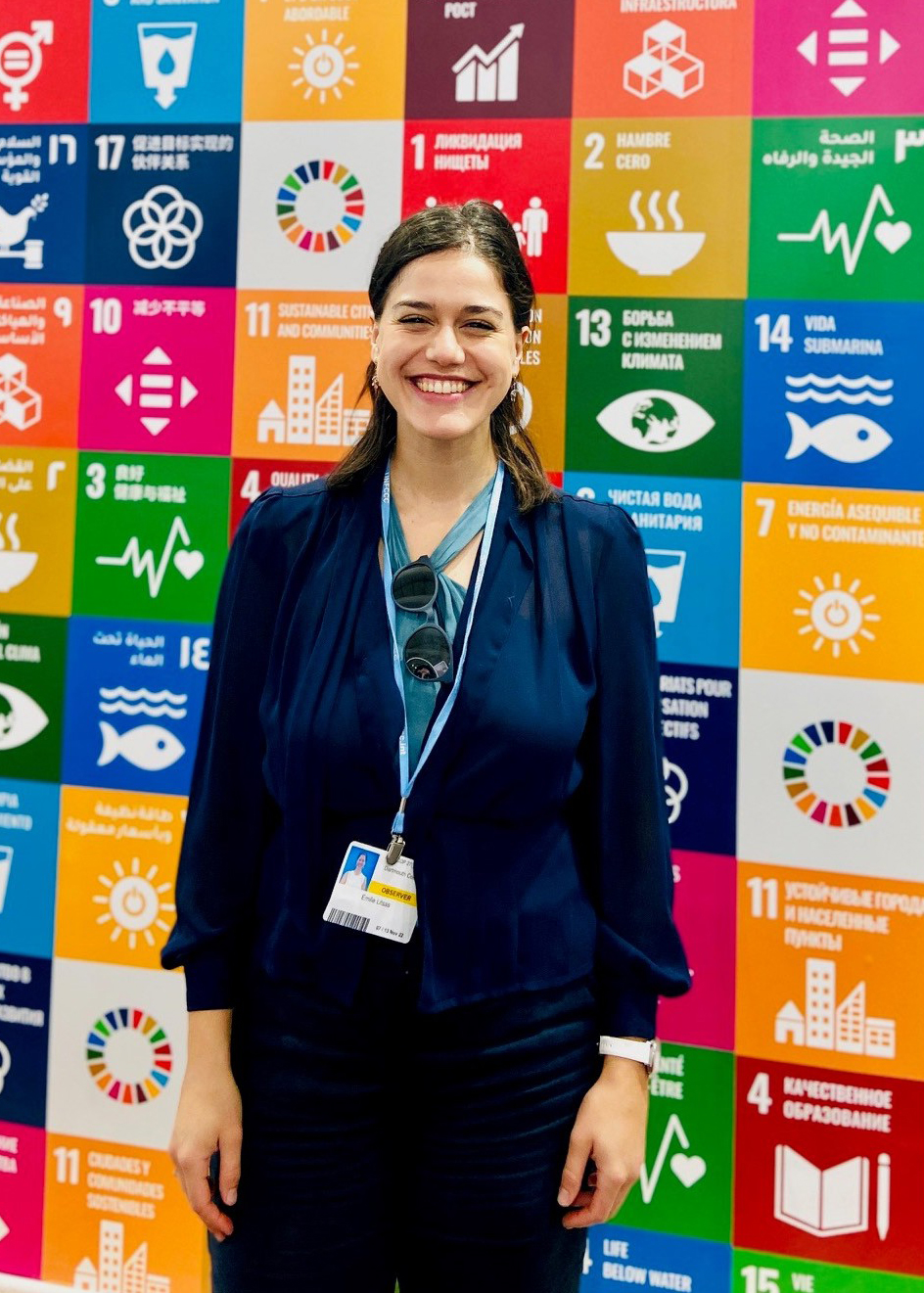 As a joint degree student between Tuck School of Business and Harvard Kennedy School for Public Policy, I find myself often traveling between the two campuses and states of mind—questioning how business principles can improve basic access to resources for vulnerable populations, and how government can fulfill a more significant role in creating and regulating technologies that protect people’s social and economic freedoms. I became passionate about migrant and refugee services in 2014 and worked on resettlement services for five years prior to graduate school. Since I started this work, the migrant crisis surged by 40% to a startling level of 100 million people displaced worldwide. The migrant crisis is continuing to grow at a faster pace than urban policy solutions. At COP27, I was able to immerse myself in climate dialogues to better understand how climate change is exacerbating forced migration, shaping urban lifestyles and economics, and changing the future of the world order based on access to sustainable resources. While these insights only skim the surface of what is currently being debated in climate policy circles, there is so much that we can do with this information as average citizens.
No matter your wealth, status, or geography on Earth, global warming will affect your lifestyle and the generations to come. Climate change realities simply cannot be ignored or avoided, and we need cross-sector, cross-industry resolve to make the sustainable revolution possible. 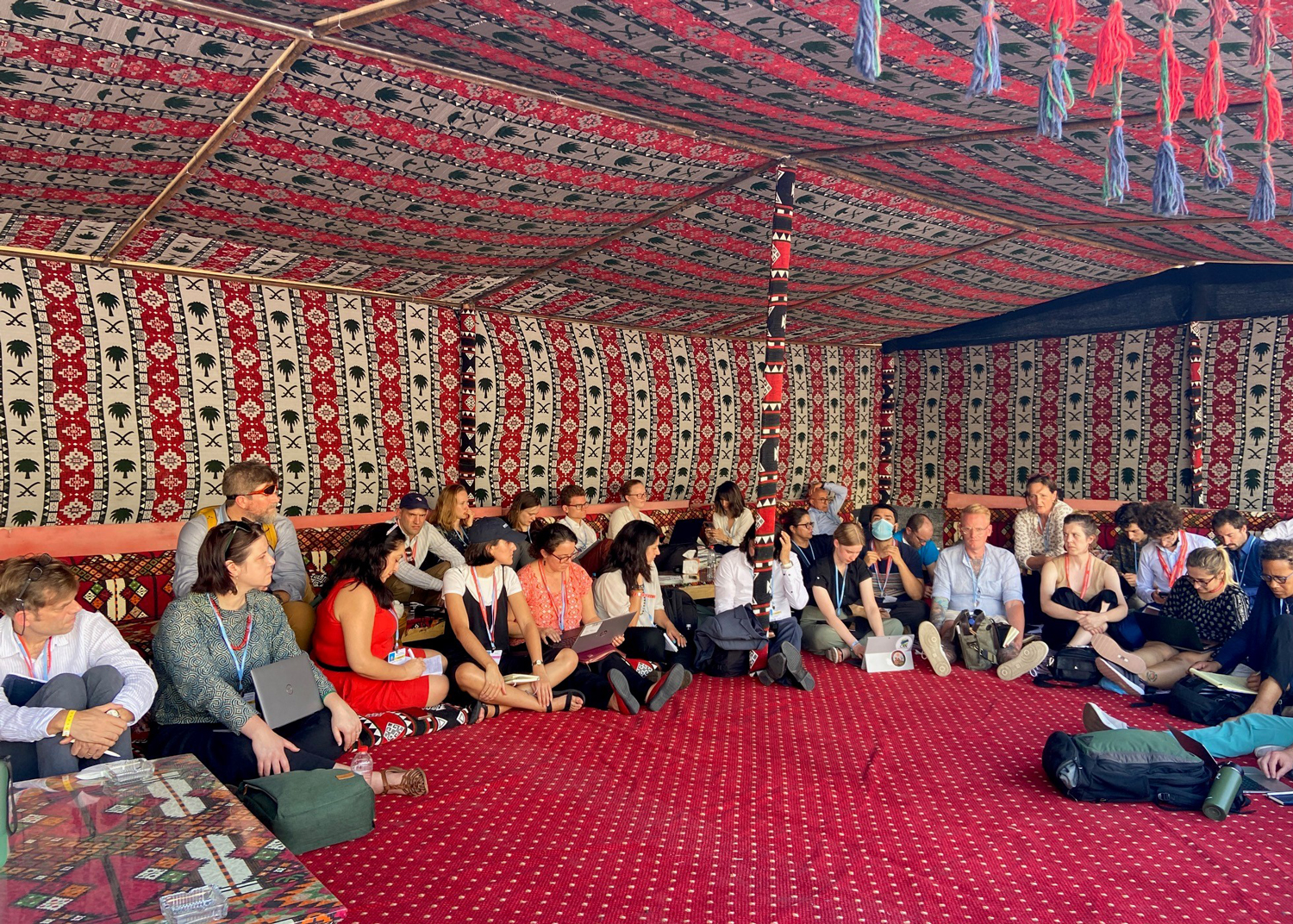 Those of us who live in the privileged, global superpower nations with the highest historic emissions should acknowledge how our current lifestyles were funded by the resources and talents of nations experiencing the worst effects of global warming. If we are to move forward in a sustainable future together, we must address past and current harms to these communities, redress wrongs, support the prosperity and dignity of climate-vulnerable groups, and invest in more sustainable strategic plans led by individuals who understand how to face and survive natural resource constraints. My study of climate issues has just begun, and I encourage you to join me in learning a more responsible approach to living and working. For further study, I refer to the expertise of climate scientists (visit the IPCC’s climate reports), climate activists (learn about youth climate activism tools), and leaders in natural resource management (read about modern indigenous practices for sustainable living). |
This Blog post was imported into the forum automatically. We hope you found it helpful. Please use the Kudos button if you did, or please PM/DM me if you found it disruptive and I will take care of it.
-BB








